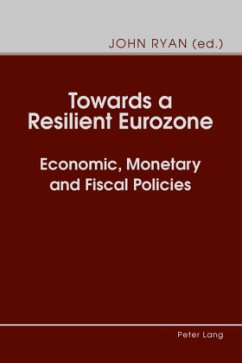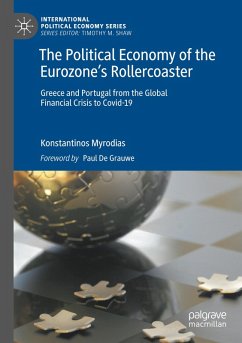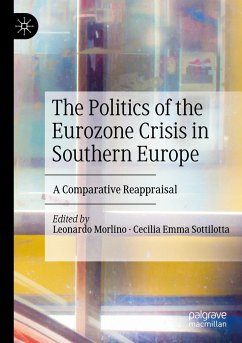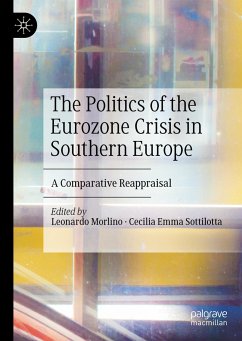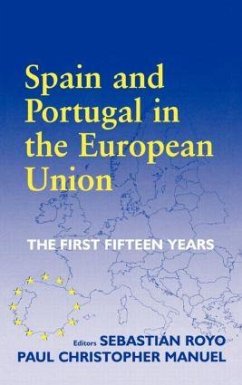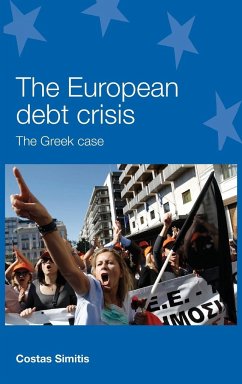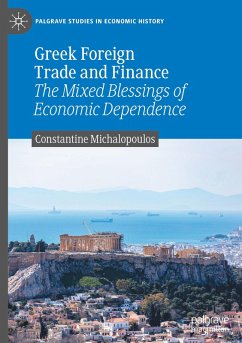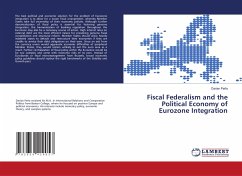
Fiscal Federalism and the Political Economy of Eurozone Integration
Versandkostenfrei!
Versandfertig in 6-10 Tagen
36,99 €
inkl. MwSt.

PAYBACK Punkte
18 °P sammeln!
The best political and economic solution for the problem of Eurozone integration is to allow for a looser fiscal arrangement, whereby Member States take full ownership of their economic policies. Although further decentralization of fiscal policy is essential for fostering genuine integration, the harmonization of banking regulation throughout the Eurozone may also be a necessary course of action. High interest rates on external debt are the most efficient means for provoking genuine fiscal consolidation and structural reform. Member States should allow heavily indebted states to default and r...
The best political and economic solution for the problem of Eurozone integration is to allow for a looser fiscal arrangement, whereby Member States take full ownership of their economic policies. Although further decentralization of fiscal policy is essential for fostering genuine integration, the harmonization of banking regulation throughout the Eurozone may also be a necessary course of action. High interest rates on external debt are the most efficient means for provoking genuine fiscal consolidation and structural reform. Member States should allow heavily indebted states to default and restructure their economies if they are unable to service their debt obligations on their own. Since an exit from the currency union would aggravate economic difficulties of peripheral Member States, they would remain unlikely to exit the euro area as a result. Further centralization of fiscal policy within the Eurozone would be far too complex and come with economic risks of its own. Insteadof Eurobonds or fiscal micromanagement from Brussels, broad economic policy guidelines should replace the rigid benchmarks of the Stability and Growth pact.



